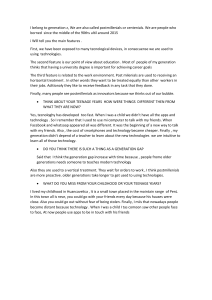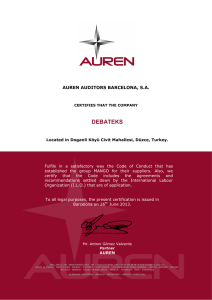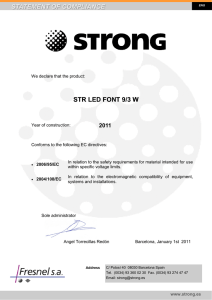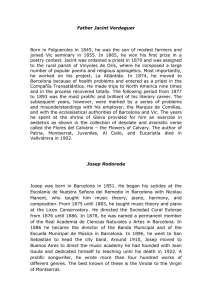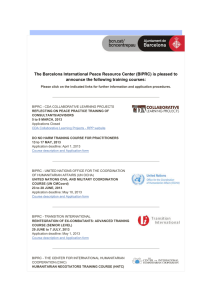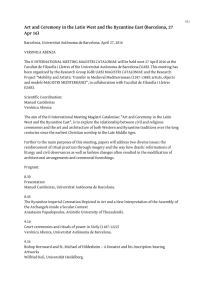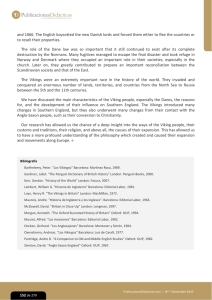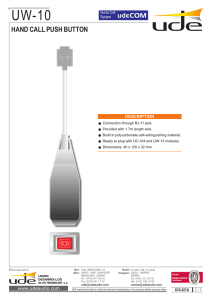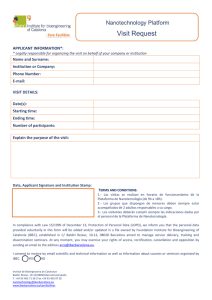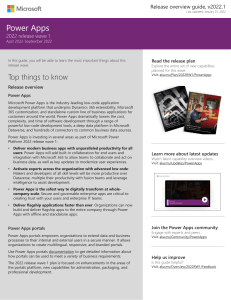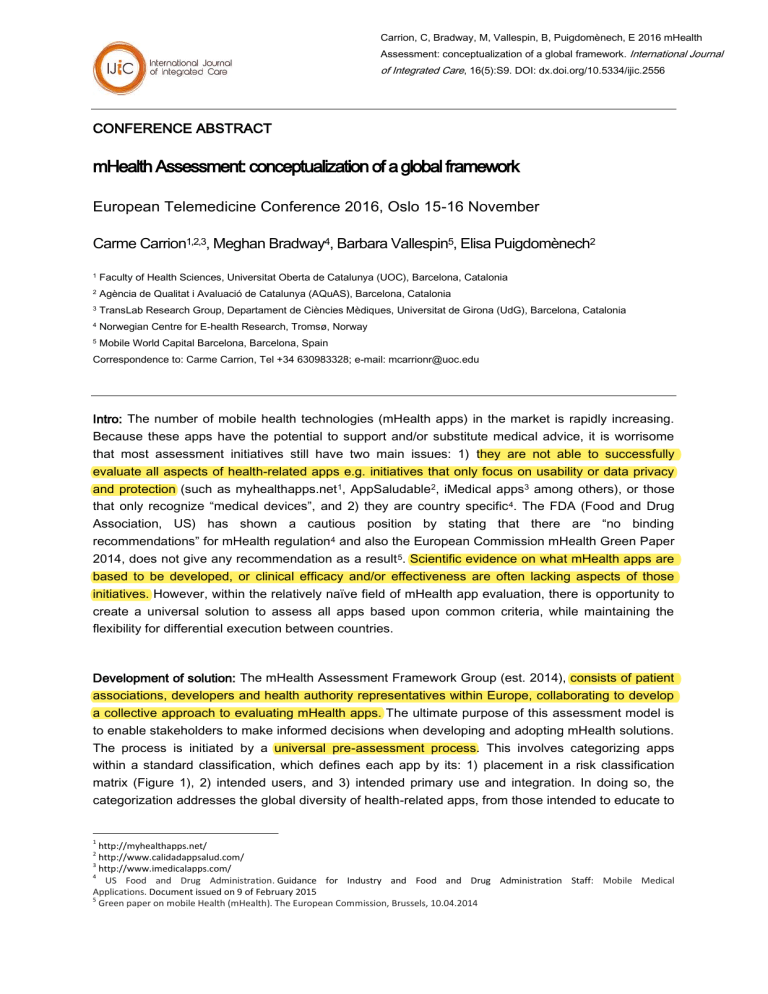
Carrion, C, Bradway, M, Vallespin, B, Puigdomènech, E 2016 mHealth Assessment: conceptualization of a global framework. International Journal of Integrated Care, 16(5):S9. DOI: dx.doi.org/10.5334/ijic.2556 CONFERENCE ABSTRACT mHealth Assessment: conceptualization of a global framework European Telemedicine Conference 2016, Oslo 15-16 November Carme Carrion1,2,3, Meghan Bradway4, Barbara Vallespin5, Elisa Puigdomènech2 1 Faculty of Health Sciences, Universitat Oberta de Catalunya (UOC), Barcelona, Catalonia 2 Agència de Qualitat i Avaluació de Catalunya (AQuAS), Barcelona, Catalonia 3 TransLab Research Group, Departament de Ciències Mèdiques, Universitat de Girona (UdG), Barcelona, Catalonia 4 Norwegian Centre for E-health Research, Tromsø, Norway 5 Mobile World Capital Barcelona, Barcelona, Spain Correspondence to: Carme Carrion, Tel +34 630983328; e-mail: [email protected] Intro: The number of mobile health technologies (mHealth apps) in the market is rapidly increasing. Because these apps have the potential to support and/or substitute medical advice, it is worrisome that most assessment initiatives still have two main issues: 1) they are not able to successfully evaluate all aspects of health-related apps e.g. initiatives that only focus on usability or data privacy and protection (such as myhealthapps.net 1, AppSaludable2, iMedical apps3 among others), or those that only recognize “medical devices”, and 2) they are country specific 4. The FDA (Food and Drug Association, US) has shown a cautious position by stating that there are “no binding recommendations” for mHealth regulation4 and also the European Commission mHealth Green Paper 2014, does not give any recommendation as a result 5. Scientific evidence on what mHealth apps are based to be developed, or clinical efficacy and/or effectiveness are often lacking aspects of those initiatives. However, within the relatively naïve field of mHealth app evaluation, there is opportunity to create a universal solution to assess all apps based upon common criteria, while maintaining the flexibility for differential execution between countries. Development of solution: The mHealth Assessment Framework Group (est. 2014), consists of patient associations, developers and health authority representatives within Europe, collaborating to develop a collective approach to evaluating mHealth apps. The ultimate purpose of this assessment model is to enable stakeholders to make informed decisions when developing and adopting mHealth solutions. The process is initiated by a universal pre-assessment process. This involves categorizing apps within a standard classification, which defines each app by its: 1) placement in a risk classification matrix (Figure 1), 2) intended users, and 3) intended primary use and integration. In doing so, the categorization addresses the global diversity of health-related apps, from those intended to educate to 1 http://myhealthapps.net/ http://www.calidadappsalud.com/ 3 http://www.imedicalapps.com/ 4 US Food and Drug Administration. Guidance for Industry and Food and Drug Administration Staff: Mobile Medical Applications. Document issued on 9 of February 2015 5 Green paper on mobile Health (mHealth). The European Commission, Brussels, 10.04.2014 2 Carrion: mHealth Assessment: conceptualization of a global framework. 2 2 those intended to treat. However, we acknowledge that due to each country’s unique medical context, we cannot assume the acceptance and evaluation of each app to be universal. Therefore, each country will specify the content of final assessment checklists, meant to verify the presence of a sustainable plan for the apps, prior to implementation within their respective countries. Conclusion: Only together, through an open source development of ideas with flexible application within different markets and systems, will we be able to bridge the gap between our health authorities, patients and mHealth developers. In doing so, we have the potential to foster innovation and greater communication, to better inform consumers and discourage distribution and development of unsafe technologies and concepts. Keywords: mHealth; apps; evaluation; assessment model Figure 1: Risk classification matrix for mHealth solutions
